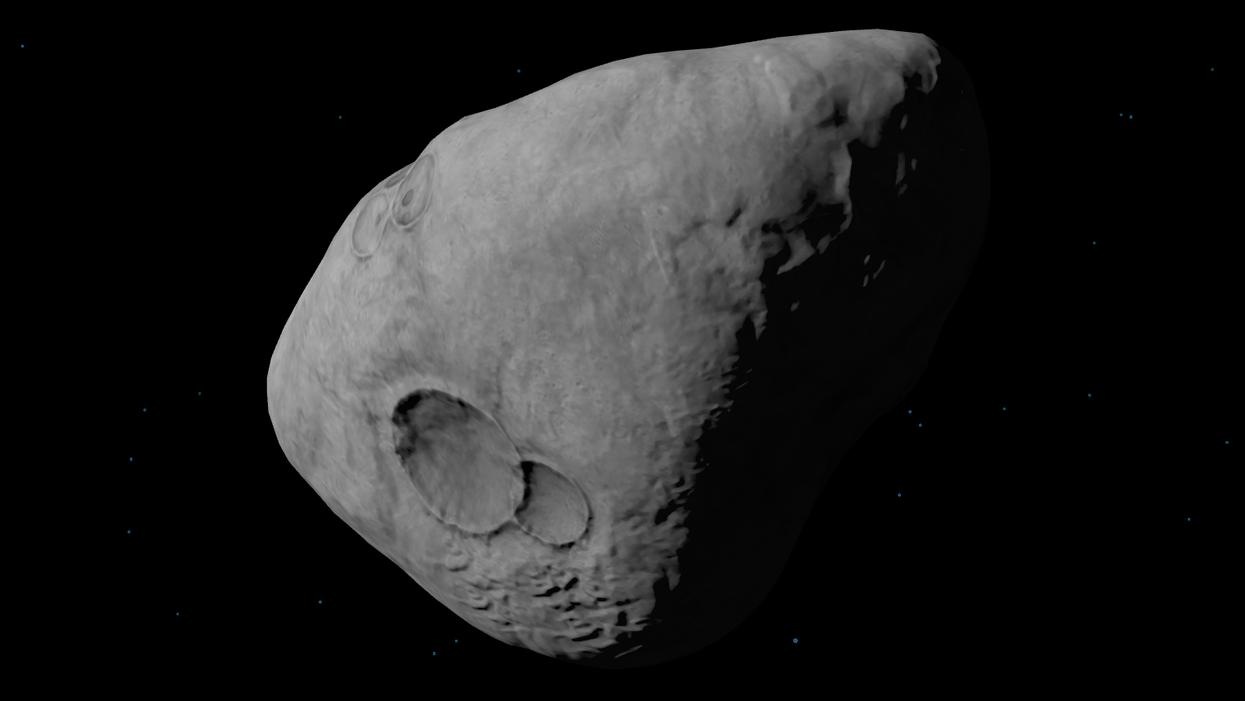A 'Potentially Hazardous' Asteroid Is About To Pass Earth & It's Bigger Than The CN Tower
It's very much giving us Don't Look Up vibes ☄️
We might be living through a real-life Leonardo DiCaprio movie moment next week because a giant asteroid is going to pass very close to the Earth.
NASA says an asteroid named 7482 (1994 PC1) is going to come as close as 1.9 million kilometres (1.2 million miles) to Earth on January 18, so you might want to pull your telescope out.
While it's not predicted to hit Earth, it will be close enough to meet NASA's definition of a "potentially hazardous asteroid."
This is the closest the asteroid will come to the Earth since January 17, 1933, when NASA estimates it came within less than 1.1 million kilometres (or 700,000 miles) of the planet.
To put into perspective just how giant this asteroid is, NASA reports that it measures more than 3,280 feet across, which would make it bigger than the world's tallest building, the Burj Khalifa, or the Empire State Building in New York.
That size is also greater than the height of Toronto's CN Tower, which is 1,815 feet.
Near-Earth #asteroid 1994 PC1 (~1 km wide) is very well known and has been studied for decades by our #PlanetaryDefense experts. Rest assured, 1994 PC1 will safely fly past our planet 1.2 million miles away next Tues., Jan. 18.\n\nTrack it yourself here: https://eyes.nasa.gov/apps/asteroids/\u00a0pic.twitter.com/35pgUb1anq— NASA Asteroid Watch (@NASA Asteroid Watch) 1642001422
It's not uncommon for asteroids to fly by the Earth, given our solar system has millions of them, but there are about 25,000 "near-Earth" asteroids that are at least 500 feet wide. If a rock of that size crashed into our planet, NASA says the effects would be devastating.
This rock just happens to be one of those asteroids.
The rather boring name 7482 (1994 PC1) is derived from the date the asteroid was discovered. It's known as an Apollo asteroid, an Earth-crossing asteroid with an orbit wider than 1 astronomical unit (AU).
However, this won't be the biggest asteroid to pass by Earth, reports CNN. In September of 2017, the asteroid 3122 Florence (1981 ET3) flew by the Earth and is estimated to be approximately 3.5-8.9 kilometres (2.2-5.5 miles) wide.
